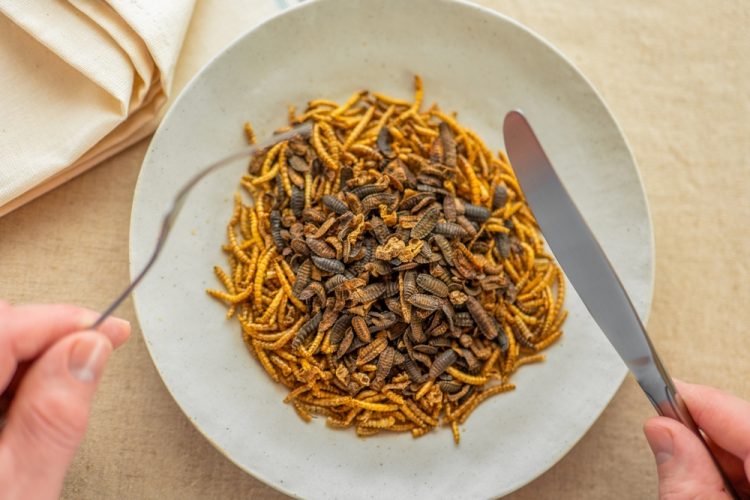Consumer disgust will block edible insects as viable meat alternative, researchers warn
Posted: 23 June 2025 | Ben Cornwell | No comments yet
New research warns that cultural and psychological disgust will keep edible insects off Western plates as a meat alternative, despite sustainability benefits.


A new international study published in npj Sustainable Agriculture warns that efforts to promote edible insects as a mainstream meat alternative in Western diets are likely to fail due to deep-rooted consumer disgust.
The study, Beyond the Buzz: Insect-based Foods are Unlikely to Significantly Reduce Meat Consumption, found that “the psychological rejection experienced by consumers, predominantly feelings of disgust,” poses the biggest obstacle to market acceptance.
Dr. Dustin Crummett, co-author and Executive Director of the Insect Institute, said:
Despite many years spent encouraging consumers towards more sustainable meat alternatives, insects have struggled to move beyond the so-called ‘yuck’ factor. Beyond the Buzz finds that high levels of disgust along with a number of economic and cultural barriers are too big an obstacle for the farmed insect market to overcome.”
The research, conducted by a team from the UK, US and Europe, analysed existing studies on consumer attitudes toward alternative proteins. It found that “willingness to try” plant-based meat substitutes reached as high as 91 percent, while for insect-based foods it hovered around just 20 percent.
Even when insects are processed into unrecognisable forms such as powders or blended into familiar foods, consumer reluctance remains.
Dr. Crummett added:
Our research suggests that this is unlikely to change in the future. Policymakers, investors and organisations working to improve the environmental and health impact of Western diets should consider that other meat alternatives may have a better chance of long-term acceptance by consumers.”
Falling short against plant-based
The study highlights that although people often praise edible insects for their lower environmental impact compared to meat, they still fall short against existing plant-based proteins. The researchers ranked insects lowest among alternative proteins for environmental performance, scalability and animal welfare.
Economic viability is another major concern. According to their findings, less than one percent of industry investment in insect agriculture targets foods intended to replace meat directly. The vast majority of these insect-based products, around 90 percent, are novelty snacks or niche ingredients that do not compete with meat at all. As the study notes, “most insect products end up competing with plant-based foods rather than replacing meat, potentially worsening environmental outcomes.”
Moreover, recent government-commissioned analysis in the UK found that using black soldier fly larvae as animal feed had a climate impact up to 13.5 times worse than soy. Insects fed on typical commercial diets performed poorly on 13 out of 16 environmental metrics.
Recognising these limitations, some insect farming firms have shifted away from human food altogether. But repurposing insects for pet food or livestock feed introduces additional inefficiencies and costs. With demand weak and costs high, the researchers not that major industry leaders such as Ÿnsect and Aspire Food Group have entered bankruptcy proceedings.
The study’s findings arrive at a pivotal time for the food industry. With livestock production responsible for roughly 14.5 percent of global greenhouse gas emissions, the search for sustainable protein alternatives has become urgent. However, Beyond the Buzz suggests that insects are not the answer, at least not for human consumption in the West.
The authors recommend that future food innovation and policy efforts focus instead on more culturally acceptable alternatives, such as plant-based and cultivated meats.
Related topics
Alternative Proteins, Ingredients, Insect Protein, Plant based, Proteins & alternative proteins, The consumer, World Food








